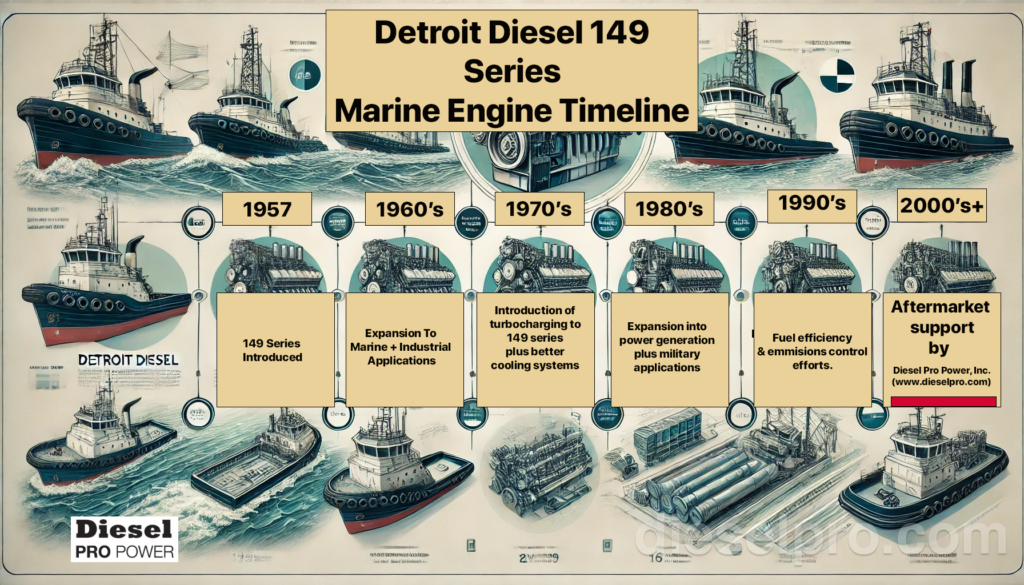November 5, 2024
Blower Operation
Constant Airflow:
Differences from Four-Stroke Engines:
Unidirectional Airflow and Scavenging
Uncovering the Ports:
Unidirectional Flow:
Scavenging Efficiency:
Enhanced Combustion and Power Output
Optimized Power Output:
High Efficiency:
Adaptability in Demanding Applications
Quick Cycle Reset:
Reliable Power in Tough Conditions:
Blower Components For Detroit Diesel 149 Series Engines
Read More
November 5, 2024
How Detroit Diesel 2-Cycle Engines Are Different From 4-Cycle Engines
Compression and Power Stroke For The Detroit Diesel 149 Series (8V149, 12V149, 16V149)
Intake Phase in the Two-Stroke Cycle of the Detroit Diesel 149 Series
Compression Phase in the Two-Stroke Cycle of the Detroit Diesel 149 Series
Power Phase in the Two-Stroke Cycle of the Detroit Diesel 149 Series
Exhaust Phase in the Two-Stroke Cycle of the Detroit Diesel 149 Series
Read More
November 5, 2024
Detroit Diesel 149 Series Now Out of Print Manual
Focus on Practical Use for the Detroit Diesel 149 Series Engines (8V149, 12V149, 16V149)
Encouraging Professional Expertise for Complex Repairs
Read More
November 5, 2024
How Maintenance Supports Longevity For Detroit Diesel 149 Series Engines (8V149, 12V149, 16V149)
Reliability through Preventive Maintenance
Key Components for Preventive Maintenance
The Value of Scheduled Inspections and Component Replacement
Maintenance Intervals and Best Practices
Daily Checks
Regular Service Intervals (e.g., 300, 600, and 1,000 hours)
Long-Term Overhauls (5,000 hours)
Benefits of Structured Maintenance Intervals
Read More
November 5, 2024
History and Development Of The Detroit Diesel 149 Series (8V149, 12V149, 16V149)
1957: Detroit Diesel Introduces the 149 Series
1960s: Expansion into the Marine and Industrial Sectors
1970s: Advancements in Power and Durability
1980s: Expansion into Power Generation and Military Applications
1990s: Focus on Fuel Efficiency and Emissions Control
Legacy and Continued Use in the 2000s and Beyond
Applications for Detroit Diesel 149 Series Engines (8V149, 12V149, 16V149)
Marine Applications
Industrial Applications
Off-Highway and Heavy-Duty Vehicle Applications
Specialized Applications
Key Features Of Detroit Diesel 149 Series Engines (8V149, 12V149, 16V149)
Two-Cycle Operation
Scavenging Air System
Durable Construction
High Power Density
Summary of Key Features
Read More




 Free US Calls: 1-888-433-4735
Free US Calls: 1-888-433-4735 International: 305-545-5588
International: 305-545-5588


